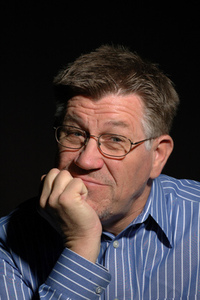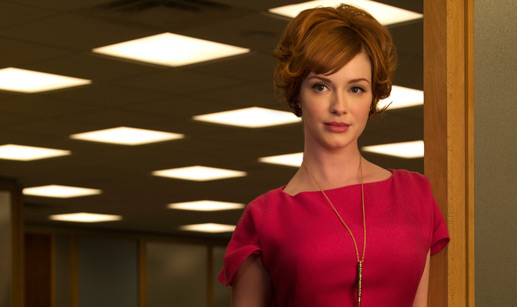I admire  Dick Staub a lot, and a few years ago had the pleasure of signing books in his company when we both had titles out from the same publisher and were joined in a conference booth. He’s hilarious and smart. He writes regularly for the Religion News Service, and this week’s column is a touching admonishment to his fellow Christians to tread carefully when they consider Islam. The more American Christians deal with the reality of pluralism, the more important it’ll be for us to reflect on the complicated realities Staub points to in this essay.
Dick Staub a lot, and a few years ago had the pleasure of signing books in his company when we both had titles out from the same publisher and were joined in a conference booth. He’s hilarious and smart. He writes regularly for the Religion News Service, and this week’s column is a touching admonishment to his fellow Christians to tread carefully when they consider Islam. The more American Christians deal with the reality of pluralism, the more important it’ll be for us to reflect on the complicated realities Staub points to in this essay.
I’ll post it all below the jump. Money lines:
– “It is foolish to base our perception of reality solely on our personal experience.”
– “No religion should be judged based on its worse adherents or by extreme irrational distortions of its holy texts.”
The Islam I know
By DICK STAUB
c. 2008 Religion News Service
With the anniversary the tragic, evil events of Sept. 11, 2001
so fresh in our minds, it may seem an odd time for me to write
positively about the Islam I know.
In the aftermath of the attacks, the airwaves have been packed with
shrill,demonizing rhetoric about radical Islamic terrorists consumed by
hate and unfazed by the slaughter of innocents.
I do not disagree that these barbarians are intent on the
destruction of infidels, whom they self-servingly define as anyone who
does not share their views.
I understand this is a face of Islam, and one that must be taken
seriously. But it is not the Islam I know.
It is foolish to base our perception of reality solely on our
personal experience. It is also foolish to form our perception of
reality on events we see and interpretations we read when they are at
odds with our personal experience.
I first encountered Islam in 1967, when I, then a teenage student,
traveled to Indonesia. After an interminably long flight I wanted
nothing more than to sink into a long deep sleep. At sunrise a sound
emanating from a nearby minaret pierced my slumber.
A muezzin issued the first call to prayer of the day: “God is the
greatest. I bear witness that there is no deity except God. I bear
witness that Muhammad is the messenger of God. Make haste towards
prayer. Make haste towards welfare. Prayer is better than sleep.”
For the next three months, five times a day I saw people drop to
their knees to acknowledge their dependence on and submission to God.
The Christian missionaries I met dismissed these daily prayers as
meaningless, ritualistic and rote. But that did not lessen the deep
impression they made on me; they remain embedded in my memory.
The Islam I first saw was devout, more so it seemed than my own
devotion to Jesus Christ, who by that time I called my Lord.
A few years later, while taking a class at Gordon-Conwell
Theological Seminary, I read extensively about Islam and then wrote a
paper urging a Muslim-Christian dialogue and exploring how it might come
about.
Since Sept. 11, numerous books have been written by people smarter
than I identifying what they see as indisputable evidence that Islamic
terrorism is the inevitable result of serious devotion to the Quran.
Don Richardson, author of “Peace Child,” has spent his life
identifying common ground to connect the world’s religions to Christian
belief. He has concluded there is no common ground between Christianity
and Islam.
But I believe that all humans and the religions we practice share
some common ground, because all of us are created in God’s image and
therefore inherently possess spiritual, intellectual, creative, moral
and relational capacities.
After seminary, I traveled to Morocco and was welcomed into the
homes of Muslims I met. Gathered around a platter of chicken and
couscous, I was enfolded into their familial warmth and camaraderie.
I witnessed a Muslim wedding in Egypt and saw the same mix of
solemnity, sincerity and joyous celebration I’ve seen in every Christian
wedding I’ve attended.
The Islam I know is familial and hospitable.
As a matter fact a couple of years ago, historian Martin Marty told
me that all world religions share at least one characteristic —
hospitality. You haven’t experienced hospitality until a watchful,
welcoming host from the Middle East has attended to you.
So on Sept. 11, when those wretched fallen humans took out their
rage on the innocents, it was not the Islam I knew and had experienced
personally.
No religion should be judged based on its worse adherents or by
extreme irrational distortions of its holy texts.
Contemporary Mormons are as distressed by polygamy as we are.
Thoughtful Jews reflect on the horrors of the Holocaust fully aware of
Old Testament stories documenting their ancestors’ annihilation of
enemies. Devout Catholics grieve while reading stories of sexual abuse
of children by priests.
I refuse to reduce a religion — Islam included — to its worse
distortions.
I place the anomaly of hate-filled Islamic fundamentalists in the
broader context of the Muslims I’ve personally seen and known: devout
and hospitable humans created in God’s image and trying in their own way
to transcend this human existence by connecting to the divine.
(Dick Staub is the author of “The Culturally Savvy Christian” and
the host of The Kindlings Muse (www.thekindlings.com). His blog can be
read at www.dickstaub.com)
so fresh in our minds, it may seem an odd time for me to write
positively about the Islam I know.
In the aftermath of the attacks, the airwaves have been packed with
shrill,demonizing rhetoric about radical Islamic terrorists consumed by
hate and unfazed by the slaughter of innocents.
I do not disagree that these barbarians are intent on the
destruction of infidels, whom they self-servingly define as anyone who
does not share their views.
I understand this is a face of Islam, and one that must be taken
seriously. But it is not the Islam I know.
It is foolish to base our perception of reality solely on our
personal experience. It is also foolish to form our perception of
reality on events we see and interpretations we read when they are at
odds with our personal experience.
I first encountered Islam in 1967, when I, then a teenage student,
traveled to Indonesia. After an interminably long flight I wanted
nothing more than to sink into a long deep sleep. At sunrise a sound
emanating from a nearby minaret pierced my slumber.
A muezzin issued the first call to prayer of the day: “God is the
greatest. I bear witness that there is no deity except God. I bear
witness that Muhammad is the messenger of God. Make haste towards
prayer. Make haste towards welfare. Prayer is better than sleep.”
For the next three months, five times a day I saw people drop to
their knees to acknowledge their dependence on and submission to God.
The Christian missionaries I met dismissed these daily prayers as
meaningless, ritualistic and rote. But that did not lessen the deep
impression they made on me; they remain embedded in my memory.
The Islam I first saw was devout, more so it seemed than my own
devotion to Jesus Christ, who by that time I called my Lord.
A few years later, while taking a class at Gordon-Conwell
Theological Seminary, I read extensively about Islam and then wrote a
paper urging a Muslim-Christian dialogue and exploring how it might come
about.
Since Sept. 11, numerous books have been written by people smarter
than I identifying what they see as indisputable evidence that Islamic
terrorism is the inevitable result of serious devotion to the Quran.
Don Richardson, author of “Peace Child,” has spent his life
identifying common ground to connect the world’s religions to Christian
belief. He has concluded there is no common ground between Christianity
and Islam.
But I believe that all humans and the religions we practice share
some common ground, because all of us are created in God’s image and
therefore inherently possess spiritual, intellectual, creative, moral
and relational capacities.
After seminary, I traveled to Morocco and was welcomed into the
homes of Muslims I met. Gathered around a platter of chicken and
couscous, I was enfolded into their familial warmth and camaraderie.
I witnessed a Muslim wedding in Egypt and saw the same mix of
solemnity, sincerity and joyous celebration I’ve seen in every Christian
wedding I’ve attended.
The Islam I know is familial and hospitable.
As a matter fact a couple of years ago, historian Martin Marty told
me that all world religions share at least one characteristic —
hospitality. You haven’t experienced hospitality until a watchful,
welcoming host from the Middle East has attended to you.
So on Sept. 11, when those wretched fallen humans took out their
rage on the innocents, it was not the Islam I knew and had experienced
personally.
No religion should be judged based on its worse adherents or by
extreme irrational distortions of its holy texts.
Contemporary Mormons are as distressed by polygamy as we are.
Thoughtful Jews reflect on the horrors of the Holocaust fully aware of
Old Testament stories documenting their ancestors’ annihilation of
enemies. Devout Catholics grieve while reading stories of sexual abuse
of children by priests.
I refuse to reduce a religion — Islam included — to its worse
distortions.
I place the anomaly of hate-filled Islamic fundamentalists in the
broader context of the Muslims I’ve personally seen and known: devout
and hospitable humans created in God’s image and trying in their own way
to transcend this human existence by connecting to the divine.
(Dick Staub is the author of “The Culturally Savvy Christian” and
the host of The Kindlings Muse (www.thekindlings.com). His blog can be
read at www.dickstaub.com)

